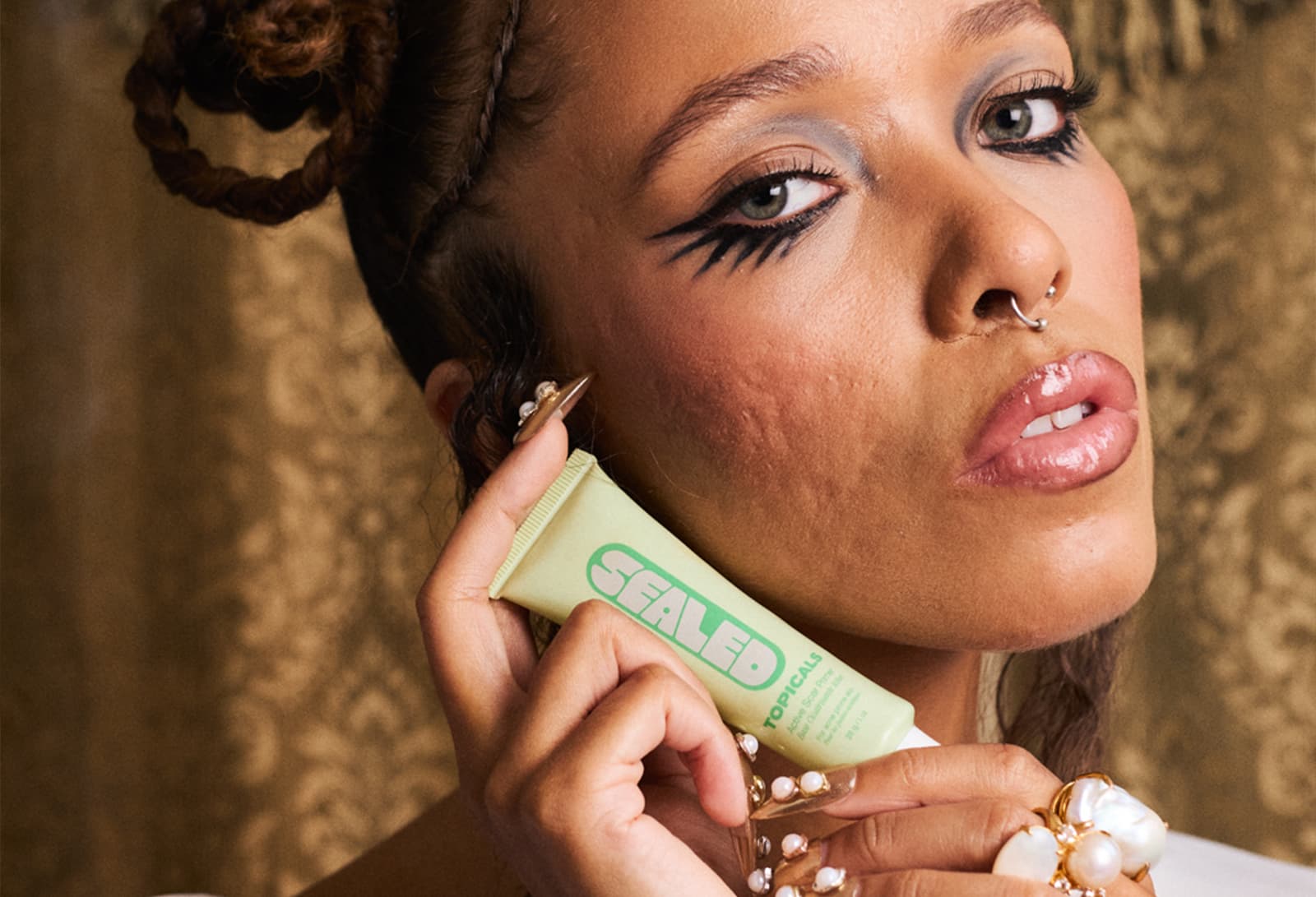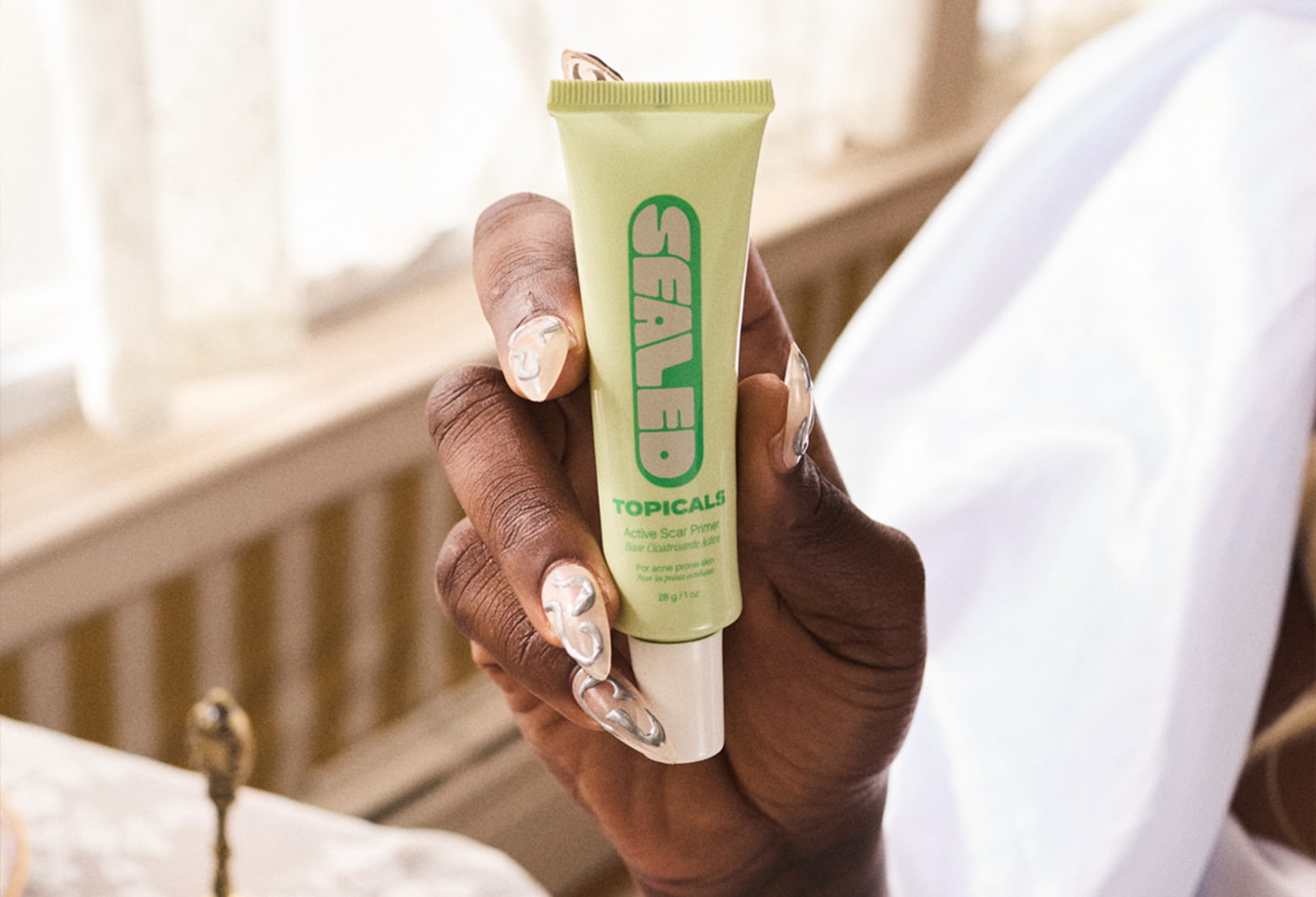Since its inception in 2020, Topicals has taken a stand for those struggling with their skin. Founder and CEO Olamide Olowe set up the company in response to her own battles with chronic skin conditions and the lack of accessible solutions.
With a product development process firmly rooted in third-party, peer-reviewed clinical studies, Topicals offers products that effectively treat flare-ups (with no prescription needed), especially for skin of color, while still offering a cheerful aesthetic for customers to enjoy and allowing the effects of their skin conditions on their mental health to be heard. That mission hit home, given that one in four American struggles with a skin condition, while studies show that those with eczema are two-and-a-half to three times more likely to have depression and anxiety.
Topicals made an exceptional entry into the industry, launching with $2.6MM in VC funding and to a waitlist for its debut products, the Like Butter Moisturizer (for eczema-prone skin) and Faded Serum (for dark spots and discoloration). In 2022, the company closed a $10MM Series A funding round. Today, the brand has donated more than $100K to mental health organizations and is the fastest-growing skincare company stocked at Sephora. Its expected revenue for 2023 is $20 to 30MM, while its range has expanded to include Sealed Active Scar Filling Primer to cover acne scars and large pores, Slather Exfoliating Body Serum with retinol and AHAs to smooth skin, and High Roller Ingrown Hair Tonic to counteract ingrown hairs with AHAs and BHAs.
Things certainly aren’t slowing down anytime soon. Last month, Topicals launched their “Hard Body Soft Launch” campaign featuring singer, actress, and creative director, Teyana Taylor. Most recently, the company published a study which further underpins its core mission for inclusivity in skincare.
Led by Vice President of Product Development Tamar Kamen and Adjunct Professor, Martina M. Cartwright, PhD, RDN of The University of Arizona School of Nutritional Science and Wellness, the web-based survey was conducted across 775 participants. Of the total number, 64.6% identified as having skin of color and 94.2% were female, while 76.6% identified as Black/African American and 48.9% were18 to24 years old.
The research was conducted around three skin conditions (acne, dark spots, and atopic dermatitis/eczema) and dove into the duration of symptoms as well as mental health impacts. The key findings from the study showed:
Acne
Dark Spots
Atopic Dermatitis/Eczema
Mental Health Impacts


Given the drastic impact these skin conditions have on everyday lives, easy-to-access solutions that provide visible results are more important than ever. Kamen tells BeautyMatter, “We are so proud of the study we conducted and the resulting paper. We’ve seen lots of data in our industry that is often not inclusive of skin of color populations. We wanted to have a more comprehensive view of those impacted by chronic skin conditions. Our learnings support our mission to make skincare inclusive and available to everyone with chronic skin conditions. We now better understand the immense psychological impact from our current environment, especially social media, on individuals living those conditions.”
Roxana Ontiveros, Product Marketing Lead, adds, “We’ll be using this research to continue to create effective products that meet the needs of consumers, especially those of color. This research not only allows us to move the needle on diversity and inclusion within skincare, but also to be better product developers and get very granular with people’s needs.”
The facts are proving a vital resource for not only Topicals’ future product aspirations but the industry at large. “Through this research, we were able to quantify much of what inspired the brand and introduce statistical information that now the entire industry can use, especially as they conceive of more thoughtful product offerings and services,” Ontiveros adds. “One of these stats did reveal that 92.5% do not believe most dermatologists or aestheticians are trained to treat darker skin tones. And here is where we find such a large opportunity to not only create a dialogue with our community on their experiences but also amplify our pledge of educating 10,000 skincare professionals on thorough and inclusive skincare treatments for skin of color by 2026 via our Experts Program.”
Ontiveros found it “extremely important” to address the dynamic between skin health and mental health, especially given the brand’s interest in psychodermatology. “Understanding its impact gives us collective power and personal agency by being transparent on what makes us vulnerable. Social media now functions as another mirror and as a digitally native brand we know that’s led to an increased self-awareness and internalized pressure to be perfect. Addressing this impact reinforces the notion here at Topicals that you make skin look good, not the other way around,” she states. With 40% of teenagers on Instagram feeling unattractive due to the images they see on the app, often airbrushed to unrealistic perfection, addressing this vulnerability and setting more realistic expectations with consumers is imperative—as is increasing representation across these platforms and within the beauty industry.
“The main takeaway is that inclusivity must go beyond surface-level efforts, encompassing all demographics, especially marginalized groups, in the research and development process. Recognizing that Black and Brown communities' frustrations with finding effective solutions have eroded their trust in brand claims, it's crucial to focus on intentional efforts to rebuild that trust,” Sochima Mbadugha, Vice President of Strategy and Biz Ops at Topicals proclaims.
The success of Topicals and its latest research findings is certainly proof that skincare in 2023 needs to go beyond enticing marketing claims or pretty packaging. Creating science-based, effective products—with the independent research to back them up—for and with your community is now the hallmark of modern dermatological solutions.